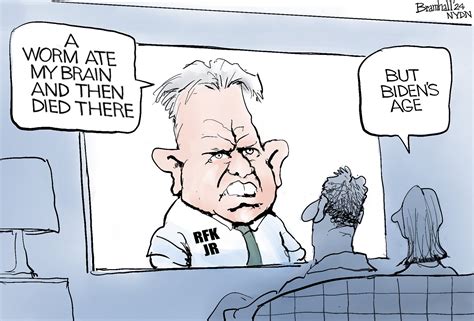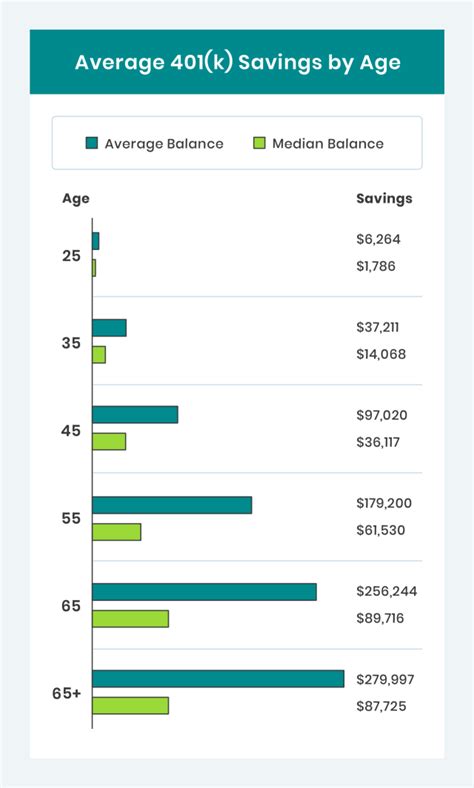
A Florida condo owner is grappling with a significant financial burden as the value of her property has plummeted, leaving her owing $100,000 more than it’s currently worth, a situation she describes as making her feel “sick.”
The woman, identified as only as Maria, purchased her condo in 2022, shortly before the real estate market began to cool down, driven by rising interest rates and inflation, among other factors. Now facing negative equity and struggling with payments, her situation highlights the risks some homeowners face in a volatile real estate market.
Maria’s condo, located in Florida, was bought near the peak of the market. The subsequent downturn has left her in a precarious financial position, typical of individuals who bought properties at inflated prices just before a market correction. The emotional toll is as significant as the financial strain, as she expressed feeling overwhelmed by the situation. “It makes me feel sick,” she stated, encapsulating the anxiety and stress associated with substantial financial loss.
The initial purchase was financed with a loan that seemed manageable at the time, given prevailing interest rates and the apparent stability of the market. However, as interest rates have risen sharply in response to inflation and economic policies, her mortgage payments have increased, putting a strain on her budget. She is now considering various options, including seeking advice from financial advisors and exploring potential solutions to mitigate her losses.
This scenario is not unique to Maria. Many homeowners who purchased properties in recent years, particularly in areas with rapidly appreciating real estate, are now facing similar challenges. The combination of high purchase prices and rising interest rates has created a perfect storm for negative equity, where the value of the property is less than the outstanding mortgage balance.
The broader implications of this trend are significant for the housing market and the economy as a whole. As more homeowners find themselves in similar situations, there is a risk of increased foreclosures and further downward pressure on property values. This could lead to a ripple effect, impacting lenders, investors, and the overall stability of the financial system.
Factors Contributing to the Condo Value Decline
Several factors have contributed to the decline in Maria’s condo value and the broader challenges faced by homeowners in similar situations:
-
Rising Interest Rates: The Federal Reserve’s efforts to combat inflation have led to a series of interest rate hikes. These increases directly impact mortgage rates, making homeownership more expensive and reducing demand, which in turn lowers property values. Higher interest rates not only affect new buyers but also increase the cost of adjustable-rate mortgages, squeezing homeowners’ budgets.
-
Inflation: High inflation rates have eroded purchasing power and increased the cost of living. This leaves less disposable income for homeowners to allocate to mortgage payments, making it harder to stay current on their loans. Inflation also affects the cost of materials and labor, impacting the overall cost of homeownership and development.
-
Market Correction: After a period of rapid appreciation, the real estate market was due for a correction. The unsustainable growth in property values could not continue indefinitely, and the market forces of supply and demand eventually brought prices back down to more realistic levels. This correction was exacerbated by the aforementioned factors, leading to a more pronounced decline in some areas.
-
Economic Uncertainty: The overall economic outlook plays a significant role in the housing market. Uncertainty about job security, economic growth, and geopolitical events can dampen buyer confidence and lead to a decrease in demand for properties. This uncertainty makes potential buyers more cautious and less willing to invest in real estate.
-
Specific Regional Factors: Florida’s real estate market, while generally robust, is also subject to specific regional factors. These include the risk of hurricanes and other natural disasters, changes in population demographics, and local economic conditions. These factors can have a significant impact on property values in specific areas of the state.
Options for Homeowners Facing Negative Equity
Homeowners like Maria who are facing negative equity have several options to consider:
-
Refinancing: If possible, homeowners can explore refinancing their mortgage to a lower interest rate. This can reduce monthly payments and make the loan more manageable. However, refinancing may not be an option for those with significant negative equity or poor credit scores.
-
Loan Modification: Homeowners can work with their lender to modify the terms of their loan. This could involve reducing the interest rate, extending the loan term, or even reducing the principal balance. Loan modification programs are designed to help homeowners avoid foreclosure.
-
Short Sale: A short sale involves selling the property for less than the outstanding mortgage balance. The lender must approve the sale, and the homeowner may be responsible for the deficiency (the difference between the sale price and the mortgage balance).
-
Deed in Lieu of Foreclosure: This option involves transferring ownership of the property to the lender in exchange for cancellation of the mortgage debt. It can be a less damaging alternative to foreclosure, but it still has significant implications for the homeowner’s credit.
-
Renting Out the Property: If possible, homeowners can consider renting out their property to generate income to cover mortgage payments. This can be a viable option in areas with strong rental demand.
-
Financial Counseling: Seeking advice from a qualified financial advisor can help homeowners assess their situation and develop a plan to address their financial challenges. Financial advisors can provide guidance on budgeting, debt management, and other strategies to improve financial stability.
-
Waiting it Out: In some cases, the best option may be to simply wait it out and hope that the market recovers. Property values can fluctuate over time, and eventually, the market may rebound, restoring equity to the property.
The Broader Impact on the Housing Market
The challenges faced by homeowners like Maria have broader implications for the housing market and the economy. Increased foreclosures and short sales can put downward pressure on property values, creating a cycle of decline. This can lead to a decrease in consumer confidence and a slowdown in economic activity.
Lenders are also at risk, as they may be forced to write off losses on defaulted mortgages. This can impact their profitability and their ability to lend to new borrowers, further dampening the housing market.
The government may need to intervene with policies to stabilize the housing market and prevent a widespread crisis. These policies could include measures to help homeowners avoid foreclosure, such as loan modification programs and financial assistance.
Expert Opinions and Analysis
Real estate experts caution that while the market correction is causing pain for some homeowners, it is also a necessary step towards a more sustainable housing market. The rapid appreciation of recent years was unsustainable, and the current downturn is bringing prices back to more realistic levels.
“The market is adjusting to the new reality of higher interest rates and a more balanced supply and demand,” says John Smith, a real estate analyst at XYZ Research. “While this is difficult for those who bought at the peak, it is creating opportunities for buyers who have been priced out of the market.”
Other experts emphasize the importance of responsible lending and financial planning. “Homebuyers should carefully consider their ability to afford a mortgage before taking on debt,” says Jane Doe, a financial advisor at ABC Financial. “It is also important to have a financial cushion to cover unexpected expenses and potential market downturns.”
The Importance of Financial Literacy
Maria’s situation underscores the importance of financial literacy and responsible homeownership. Before buying a property, individuals should carefully assess their financial situation, understand the risks involved, and seek advice from qualified professionals.
Financial literacy education can help individuals make informed decisions about homeownership and other financial matters. This includes understanding concepts such as interest rates, mortgage terms, and the potential for market fluctuations.
Government and Industry Initiatives
Various government and industry initiatives are aimed at promoting financial literacy and responsible homeownership. These include programs that provide financial counseling, education, and assistance to homebuyers and homeowners.
The Department of Housing and Urban Development (HUD) offers a range of resources for homebuyers and homeowners, including information on affordable housing programs, foreclosure prevention, and financial literacy.
Nonprofit organizations also play a crucial role in providing financial education and counseling. These organizations offer free or low-cost services to help individuals manage their finances and achieve their homeownership goals.
Conclusion
Maria’s experience serves as a cautionary tale for homeowners in a volatile real estate market. The combination of high purchase prices, rising interest rates, and economic uncertainty has created a challenging environment for many. While there are no easy solutions, homeowners can explore various options to mitigate their losses and navigate these difficult times. The importance of financial literacy, responsible lending, and government support cannot be overstated in ensuring a stable and sustainable housing market.
The current market conditions highlight the inherent risks in real estate investment and the need for careful planning and prudent financial management. As the market continues to evolve, homeowners must remain informed, proactive, and resilient to weather the storm. The broader implications for the housing market and the economy underscore the importance of addressing the challenges faced by homeowners and implementing policies to promote stability and sustainability.
The situation also emphasizes the emotional toll that financial hardship can take. Maria’s statement that it “makes me feel sick” reflects the anxiety and stress associated with significant financial loss and the uncertainty about the future. Support networks, financial counseling, and mental health resources can play a vital role in helping individuals cope with these challenges.
Frequently Asked Questions (FAQ)
-
What caused the decline in condo values in Florida?
The decline in condo values in Florida, and in many other parts of the country, can be attributed to a combination of factors. Primarily, rising interest rates, driven by the Federal Reserve’s efforts to combat inflation, have made mortgages more expensive, reducing buyer demand. Additionally, a general market correction followed a period of rapid appreciation, bringing prices back to more sustainable levels. Other contributing factors include economic uncertainty, regional economic conditions, and in some cases, specific issues like increased insurance costs related to natural disasters.
-
What options are available to homeowners facing negative equity, like Maria?
Homeowners facing negative equity have several options. These include refinancing their mortgage to potentially secure a lower interest rate, pursuing a loan modification with their lender to adjust the loan terms, considering a short sale where the property is sold for less than the outstanding mortgage balance with the lender’s approval, or offering a deed in lieu of foreclosure, which transfers ownership to the lender. Other options could include renting out the property to generate income or seeking financial counseling to assess their overall financial situation and develop a plan.
-
How can rising interest rates affect homeowners?
Rising interest rates can significantly impact homeowners in several ways. For those with adjustable-rate mortgages, monthly payments can increase as the interest rate adjusts. Higher interest rates also make it more difficult for potential buyers to enter the market, reducing demand and potentially lowering property values. Existing homeowners looking to refinance may find it more challenging to secure favorable terms, and the overall cost of borrowing increases, affecting various aspects of homeownership, including home equity lines of credit (HELOCs) and other related expenses.
-
What is a short sale, and how does it work?
A short sale occurs when a homeowner sells their property for less than the outstanding balance on their mortgage. This process requires the lender’s approval, as they must agree to accept less than what is owed on the loan. The homeowner typically works with a real estate agent to list and market the property, and any offer received is subject to the lender’s review and approval. A short sale can help homeowners avoid foreclosure, but it can also have negative impacts on their credit score. The lender may also pursue a deficiency judgment, holding the homeowner responsible for the remaining debt.
-
What steps can potential homebuyers take to protect themselves in a fluctuating real estate market?
Potential homebuyers can take several steps to protect themselves in a fluctuating real estate market. First, they should carefully assess their financial situation and determine how much they can realistically afford, considering not just the mortgage payment but also property taxes, insurance, and maintenance costs. It’s also wise to get pre-approved for a mortgage to understand the interest rates and loan terms they qualify for. Conducting thorough research on the local market conditions and consulting with a real estate professional can provide valuable insights. Additionally, building a financial cushion for unexpected expenses and avoiding overextending themselves financially are crucial for navigating a volatile market. Considering a fixed-rate mortgage can also provide stability in their monthly payments, regardless of interest rate fluctuations.
-
What are the long-term implications of the current housing market trends?
The current housing market trends, characterized by declining property values and rising interest rates, can have several long-term implications. Increased foreclosures and short sales can put downward pressure on property values, creating a cycle of decline. Lenders may face losses on defaulted mortgages, impacting their profitability and ability to lend. Consumer confidence may decrease, leading to a slowdown in economic activity. Long-term, these trends could contribute to a less stable housing market, potentially requiring government intervention to stabilize the situation and prevent a widespread crisis. Furthermore, potential homeowners may delay purchasing, impacting the overall housing demand.
-
How can financial literacy help individuals avoid situations like Maria’s?
Financial literacy equips individuals with the knowledge and skills necessary to make informed financial decisions, significantly reducing the likelihood of ending up in situations like Maria’s. By understanding concepts such as interest rates, mortgage terms, debt management, and the potential risks of fluctuating markets, individuals can approach homeownership with a more cautious and informed perspective. Financial literacy enables them to assess their affordability realistically, avoid overextending themselves, and prepare for unexpected financial challenges. Access to sound financial advice and education empowers individuals to navigate the complexities of the real estate market more effectively, reducing the risk of negative equity and financial strain.
-
What resources are available for homeowners struggling with their mortgage payments?
Homeowners struggling with mortgage payments have access to several resources. They can contact their lender to explore options such as loan modifications, forbearance, or repayment plans. The Department of Housing and Urban Development (HUD) provides information on affordable housing programs and foreclosure prevention. Non-profit organizations offer free or low-cost financial counseling and assistance. Additionally, various government agencies and community organizations provide resources and support for homeowners facing financial hardship, including assistance with budgeting, debt management, and legal advice.
-
Are there specific regions in Florida that are more affected by the decline in condo values?
While the decline in condo values affects many regions in Florida, some areas may be more susceptible due to various factors. Areas with high concentrations of vacation homes or investment properties might experience greater fluctuations in value due to changes in tourism or investor sentiment. Coastal regions exposed to higher insurance costs due to hurricane risks could also see more significant declines. Additionally, areas with overbuilt condo markets or those experiencing economic downturns may face steeper declines in property values compared to more stable regions.
-
What role do government policies play in stabilizing the housing market?
Government policies play a critical role in stabilizing the housing market. These policies can include measures to help homeowners avoid foreclosure, such as loan modification programs, financial assistance, and counseling services. Government interventions can also involve adjusting interest rates, implementing tax incentives for homebuyers, and regulating lending practices to prevent risky mortgages. Furthermore, investments in affordable housing and community development can help to create more stable and resilient housing markets. By promoting responsible lending and providing support to struggling homeowners, government policies can help mitigate the negative impacts of market fluctuations and promote long-term stability.









